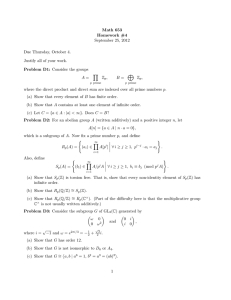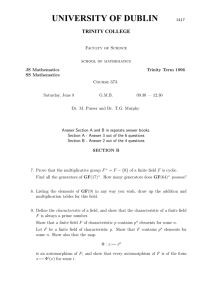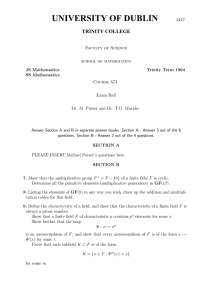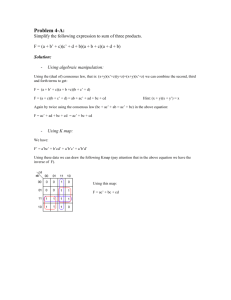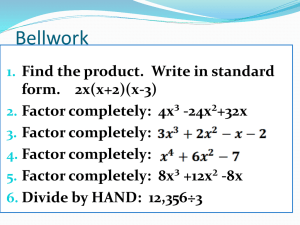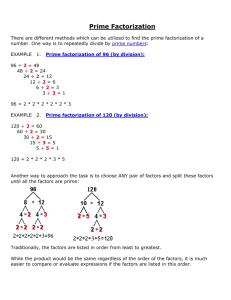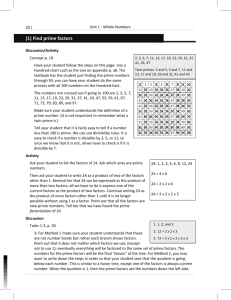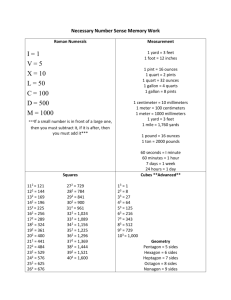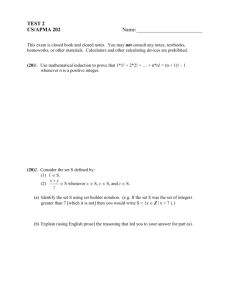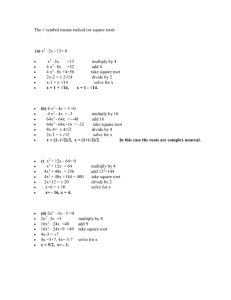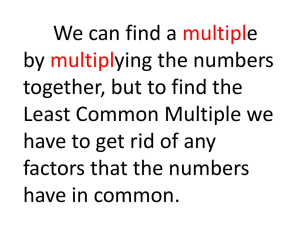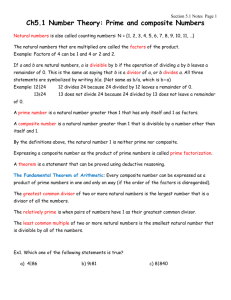Ch20sols
advertisement
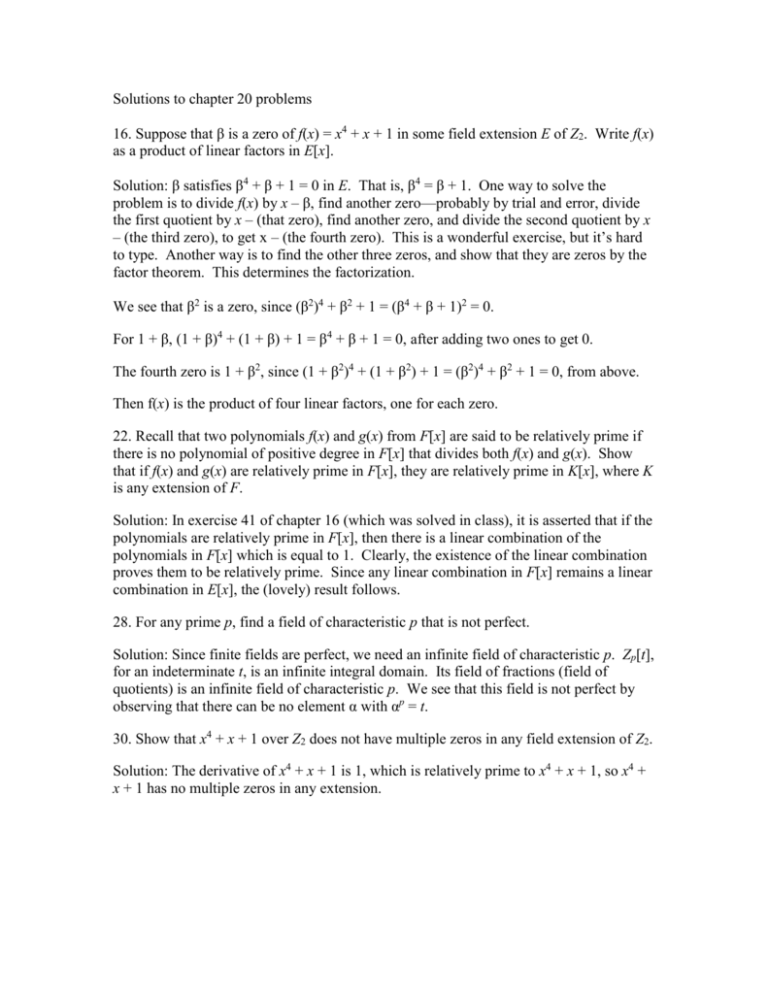
Solutions to chapter 20 problems 16. Suppose that β is a zero of f(x) = x4 + x + 1 in some field extension E of Z2. Write f(x) as a product of linear factors in E[x]. Solution: β satisfies β4 + β + 1 = 0 in E. That is, β4 = β + 1. One way to solve the problem is to divide f(x) by x – β, find another zero—probably by trial and error, divide the first quotient by x – (that zero), find another zero, and divide the second quotient by x – (the third zero), to get x – (the fourth zero). This is a wonderful exercise, but it’s hard to type. Another way is to find the other three zeros, and show that they are zeros by the factor theorem. This determines the factorization. We see that β2 is a zero, since (β2)4 + β2 + 1 = (β4 + β + 1)2 = 0. For 1 + β, (1 + β)4 + (1 + β) + 1 = β4 + β + 1 = 0, after adding two ones to get 0. The fourth zero is 1 + β2, since (1 + β2)4 + (1 + β2) + 1 = (β2)4 + β2 + 1 = 0, from above. Then f(x) is the product of four linear factors, one for each zero. 22. Recall that two polynomials f(x) and g(x) from F[x] are said to be relatively prime if there is no polynomial of positive degree in F[x] that divides both f(x) and g(x). Show that if f(x) and g(x) are relatively prime in F[x], they are relatively prime in K[x], where K is any extension of F. Solution: In exercise 41 of chapter 16 (which was solved in class), it is asserted that if the polynomials are relatively prime in F[x], then there is a linear combination of the polynomials in F[x] which is equal to 1. Clearly, the existence of the linear combination proves them to be relatively prime. Since any linear combination in F[x] remains a linear combination in E[x], the (lovely) result follows. 28. For any prime p, find a field of characteristic p that is not perfect. Solution: Since finite fields are perfect, we need an infinite field of characteristic p. Zp[t], for an indeterminate t, is an infinite integral domain. Its field of fractions (field of quotients) is an infinite field of characteristic p. We see that this field is not perfect by observing that there can be no element α with αp = t. 30. Show that x4 + x + 1 over Z2 does not have multiple zeros in any field extension of Z2. Solution: The derivative of x4 + x + 1 is 1, which is relatively prime to x4 + x + 1, so x4 + x + 1 has no multiple zeros in any extension.
